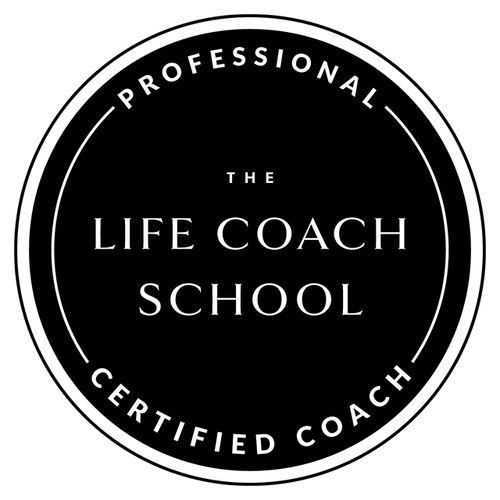What holds you back from fully accepting love? It’s common for past relationships to leave lasting marks that affect how we connect with others. These experiences can create fears and doubts, making it difficult to trust again or allow someone new into your heart. The memories of hurt and disappointment can linger, shaping how we approach intimacy.
In this blog, we will explore how fears rooted in past wounds can create unseen barriers to love and intimacy, and discuss ways to mend the heart and conquer these relationship fears.
The Impact of Relationship Fears on Connections
Relationship fears can sneak up on you and make it tough to connect with others. When you're worried about getting hurt, it can feel like there are invisible walls around you. You might hold back in conversations, not wanting to share your true feelings. This fear can make you second-guess everything, from what you say to how others feel about you. As a result, even when you’re surrounded by people, you might feel really alone.
Think about standing at the edge of a foggy bridge. You know the bridge is there, but the fog makes it hard to see anything ahead. This is what relationship fears do — they hide the potential for great friendships or love. You might know that others care about you, but fear can keep you stuck, making it hard to take that first step toward connection.
As time goes on, these fears can grow and make you feel like finding true love or friendship is impossible. They can make it seem like the warmth of companionship is just out of reach. When you're afraid, it can be easy to forget that there are wonderful connections waiting for you. It’s important to realise that you’re not alone in feeling this way, and many people struggle with similar fears.
Unseen Barriers of Past Wounds to Love and Intimacy
Past emotional wounds can create invisible walls that make it hard for you to feel love and closeness with others. Sometimes, you might not even notice these walls are there, but they quietly affect how you relate to the people around you. It’s like trying to play a game but finding out there are hidden rules you didn’t know about. You might be smiling on the outside, but inside, you’re feeling confused and unsure.
Think about trying to get across a river to reach a friend. If there’s a secret swamp in the way, you might feel stuck and unsure how to get to them. Those past hurts can make you feel trapped, leaving you frustrated. They can lead to thoughts that make you doubt your worth and wonder if love is really possible. You may even find yourself wishing for connection but feeling like something’s holding you back. It can also make it tough to open up your heart to new people, even when you want to.
These barriers often come from times when you felt hurt or let down. Even if you think you’ve moved on, the feelings from those moments can stick around. They can pop up as fears or doubts when you start to get close to someone new. You might find yourself pulling away or not letting yourself be fully honest, which can prevent you from forming deeper connections without even realising it. Sometimes, it’s like carrying a backpack full of heavy rocks — each rock representing a past hurt — that you didn’t choose to carry, but now you feel weighed down by them.
Mending the Heart and Conquering Relationship Fears
Mending the heart and conquering relationship fears involves understanding your feelings and taking steps toward healing. It's important to recognise that everyone has fears in relationships, but facing them can lead to stronger connections and a more fulfilling love life. Here are some key points to consider:
1. Gradual Exposure:
Facing your fears head-on can be daunting, but gradually exposing yourself to new relationship experiences helps mend your heart and conquer those anxieties. Start by taking small, manageable steps that allow you to dip your toes into the waters of vulnerability. Think of it like learning to swim: you don't dive into the deep end right away. Instead, you begin in the shallow end, slowly building your confidence, and learning to trust the water.
Begin by engaging in low-pressure social situations. Attend gatherings where you can meet new people without the expectation of forming deep connections immediately. This could be a casual coffee meet-up or a friendly group activity. These experiences help you practise opening up, sharing a bit about yourself, and understanding others better.
Another helpful approach is reflecting on past relationships. Identify what made you anxious and consider how those situations might look different now. Visualise positive outcomes and remind yourself that each step forward, no matter how small, is progress.
2. Creating Positive Experiences:
Creating positive experiences is a great way to heal your heart and face relationship fears. To start, think about the things that truly make you happy. Maybe you love painting, playing sports, or hanging out with friends. These fun moments help fill you with joy, pushing away any bad memories from the past. When you focus on what makes you smile, you build up your self-worth and get ready to welcome love back into your life.
Another important step is to surround yourself with people who lift you up. Friends who believe in you and encourage you to grow can change how you feel about relationships. For example, if you have a friend who always cheers you on, their support can help you feel more confident. When you're with people who care about you, it becomes easier to let go of your worries and open your heart to new connections.
Overall, creating a life filled with happy moments and supportive friends helps you move past old fears. By focusing on what you enjoy and surrounding yourself with positivity, you can build a brighter future for your relationships. Remember, the more joy you invite into your life, the easier it will be to connect with others and find love again.
3. Journaling for Clarity:
Journaling is a powerful way to uncover your feelings and clear confusion in your heart. When you write in your journal, you create a safe space to express your thoughts without any judgement. This helps you spot patterns in your relationships and understand why you might attract the wrong partners. By writing regularly, you can figure out what you truly want and need, which makes it easier to move forward confidently.
Think of your journal as a trustworthy friend who listens without interrupting. You can write about your fears, past experiences, and dreams for the future. As you jot down your thoughts, you’ll start to notice themes that may be holding you back. This awareness allows you to tackle those fears directly and break free from unhealthy patterns. The more you write, the better you understand yourself and what you truly desire in a relationship.
Set aside just a few minutes each day to write in your journal. It doesn’t need to be perfect; it just has to be honest. Over time, you’ll feel lighter and clearer in your heart, ready to welcome love without fear. Making journaling a daily habit can really change how you see yourself and your relationships.
4. Affirmations for Love:
Are you ready to change the way you think about love? One great way to do this is by using affirmations for love. Affirmations are positive phrases you can say to yourself that help change your thoughts and feelings. If you say things like “I deserve a loving relationship” or “I attract partners who share my values,” you might notice a big difference in how you feel about love and relationships.
To make these affirmations really work for you, it’s important to be consistent. Try setting aside a few minutes every morning to say your affirmations. When you look in the mirror and say these phrases, imagine what it feels like to be in a happy relationship. Over time, your mind will start to believe these positive thoughts, pushing away any fears or doubts you might have.
Another fun way to keep these affirmations in your mind is to write them down and put them where you can see them often, like on your fridge or bathroom mirror. This way, they will remind you to stay open to love. With practice, you can transform your mindset and let love into your heart.
5. Forgiveness Practices:
Forgiveness can be a big step toward healing your heart and letting go of worries in relationships. It might feel tough at first, but when you release grudges, you lighten your emotional load. Start by recognising your feelings — it's perfectly fine to feel hurt. Just remember that hanging onto anger won't help you move on.
One helpful exercise is to write down what's bothering you. After you’ve done that, imagine letting it all go. Picture it floating away like a balloon in the sky. This can be a simple yet powerful way to help you feel freer and more open to new experiences.
Another great practice is empathy. Try to understand why the other person acted the way they did. While it doesn’t excuse their behaviour, seeing things from their side can make your own hurt feel lighter. Keep in mind that forgiving is more about finding peace for yourself rather than for the other person. It opens your heart to love and happiness.
6. Limit Comparison:
Limiting comparisons can help you break free from self-doubt and fear, making it easier to welcome love into your life. When you look at someone else's relationship and feel yours doesn’t measure up, it’s easy to feel inadequate. Remember, everyone’s love story is different, just like fingerprints. What works for someone else might not be right for you. Instead of comparing, focus on what truly makes you happy.
Think of it like planting a garden. If you keep looking at your neighbour's flowers, you might miss the beauty blooming in your own garden. Just like flowers need time and care to grow, relationships do too. By reducing comparisons, you make room for your own love story to flourish.
The next time you find yourself comparing, take a moment to pause. Reflect on your strengths and what you bring to a relationship. If it helps, jot them down. This will shift your focus from what you think you lack to what you truly offer. Focus on your own path, and allow your heart to open up to love naturally.
7. Finding Joy in Solitude:
Accepting solitude can be a powerful step in healing past wounds and overcoming fears about relationships. When you take time for yourself, you start to learn what truly makes you happy and fulfilled. Solitude allows you to reflect on your desires, values, and the kind of love you wish to welcome into your life. By enjoying your own company, you build a strong foundation of self-love and confidence. This foundation is crucial in attracting partners who respect and appreciate you for who you are.
Think of solitude as an opportunity rather than a punishment. You can explore hobbies you've always been curious about or revisit interests you've neglected. It's like discovering a hidden treasure chest within yourself, filled with passions and talents. This self-discovery journey not only enriches your life but also prepares you for healthier relationships by making you more aware of your own needs and boundaries.
Finding joy in solitude doesn't mean shutting others out. Instead, it's about understanding that you're complete on your own. This realisation reduces the fear of being alone and empowers you to enter relationships as a whole person, ready to share your life with someone who truly compliments you.
Conclusion
Healing from past wounds and overcoming relationship fears is a journey that requires patience and self-compassion. By taking small steps to face your fears, create joyful experiences, and practise forgiveness, you can begin to dismantle the invisible walls that hold you back from love. Journaling can help clarify your thoughts and feelings, while affirmations reinforce your belief in your worthiness for love. Remember, it’s all about progress, not perfection. Focus on what makes you happy, and surround yourself with supportive people. With time and effort, you can open your heart again, inviting the love and connections you truly deserve into your life.
FAQs
1. How can I recognise unhealthy patterns in my relationships?
Keep an eye out for recurring conflicts, feelings of resentment, or a sense of unease that lingers despite positive moments. Journaling about your relationship dynamics can help identify these patterns.
2. What should I do if I find myself comparing my relationship to others?
Comparison often leads to dissatisfaction and unrealistic expectations. Instead, focus on your unique journey and the qualities you appreciate in your relationship. Remind yourself that every partnership is distinct, and what works for others may not work for you. Celebrating your own relationship milestones can cultivate gratitude and contentment.
3. Can forgiveness truly impact my ability to love again?
Yes, forgiveness plays a vital role in healing and moving forward in relationships. It allows you to release the emotional burdens that can hinder your ability to connect with others. Forgiving doesn’t mean forgetting but rather freeing yourself from past pain. This process creates space for new, healthier relationships, enabling you to love without reservation.







